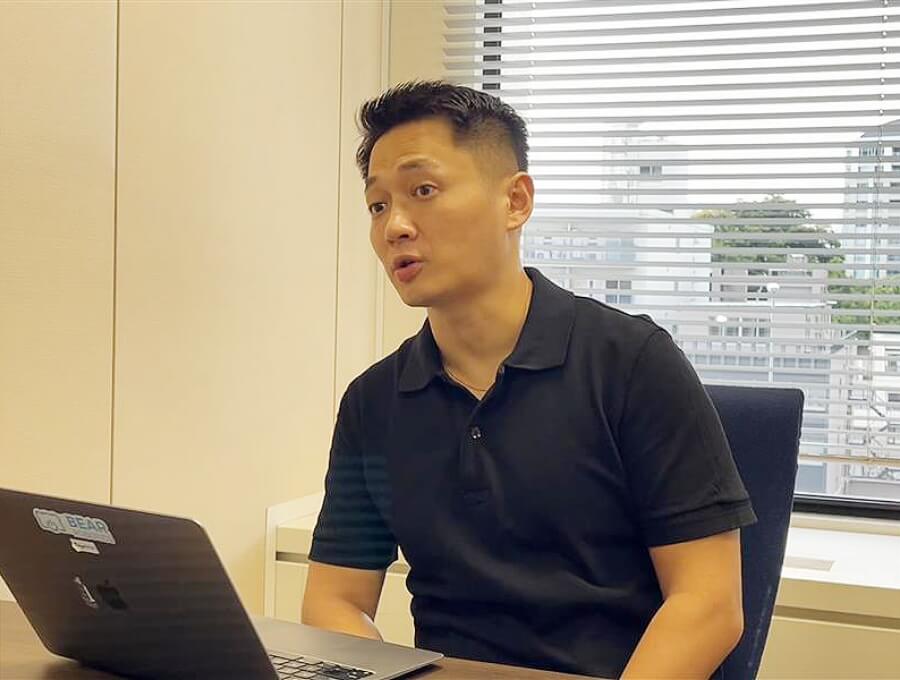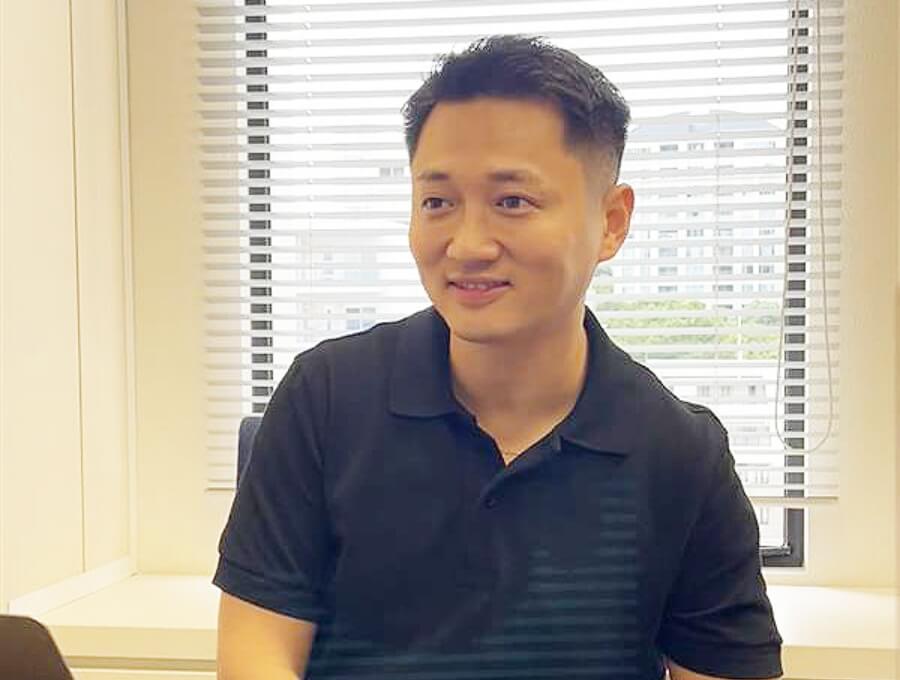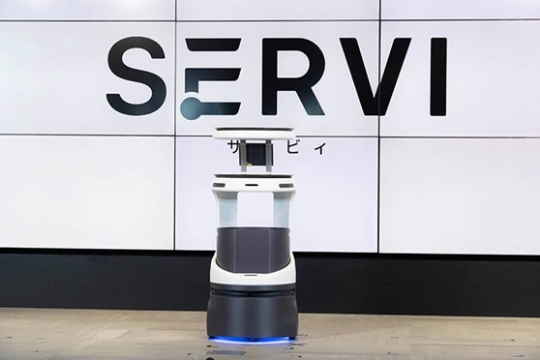
Bear Robotics Japan LLC
We had the opportunity to speak directly with Vincent Li, the Head of Bear Robotics Japan, and Terry Kim, the Business Development Manager.
Development and Provision of Robots for Serving and Delivery in the Food Service Industry
QWhat motivated you to establish your company?
John Ha, the founder of Bear Robotics, originally worked as an engineer at Google. When John started managing his own restaurant as a side business, he realized that the workload for restaurant staff was extremely heavy, and that hiring personnel was a challenging task.
Utilizing his knowledge and experience from earning a doctorate in computer science, John embarked on the development of serving robots with the aim of automating and streamlining restaurant operations.
In restaurants, it is quite challenging for people to handle simple and frequently repetitive tasks such as serving food and carrying items. John believed that assigning these tasks to robots would improve the working environment for his restaurant employees, allowing them to devote more time and energy to customer service and interaction. In other words, he became convinced that higher-quality service could be provided by assigning repetitive tasks to robots and entrusting customer interactions that require human attentiveness and flexibility to people.
Moreover, John believed that this initiative would support the local food service industry while also contributing to solutions for social issues such as the worsening labor shortage and aging population.
With these aspirations in mind, John founded Bear Robotics in Silicon Valley, USA, in 2017. The Japanese subsidiary was established in 2024. I was appointed as Head of the Japanese subsidiary in July 2025.
QWhy did you decide to expand into Japan? Also, why did you choose Tokyo?
 The hospitality industry in Japan is now highly regarded worldwide and has become an influential presence. On the other hand, Japan has a rapidly aging population and is facing a severe labor shortage due to declining birth rates. We hope that our serving robots can help support the growth of Japanese companies by addressing these challenges.
The hospitality industry in Japan is now highly regarded worldwide and has become an influential presence. On the other hand, Japan has a rapidly aging population and is facing a severe labor shortage due to declining birth rates. We hope that our serving robots can help support the growth of Japanese companies by addressing these challenges.
As you know, Tokyo is usually the first place visited by tourists coming from overseas. Furthermore, Tokyo is widely recognized internationally as a city that actively welcomes foreign companies. Major investors in Bear Robotics Japan, such as SoftBank and LINE, are also headquartered in Tokyo. Another big reason that we chose Tokyo is its high level of convenience and accessibility, especially given its proximity to our factory in South Korea.
QWhat distinguishes your serving robots from those of other companies?
The first difference is our technological capability. All of Bear’s robots are developed entirely in-house. Our robots offer excellent stability and always incorporate the latest innovations. Second is peace of mind and safety. Our robots comply with the strict safety standards of the United States, thereby ensuring a global standard of reliability.
The third difference is quality. We maintain the highest level of quality by working closely with our partner, LG Electronics. The final difference is design. Bear’s robots incorporate universal design principles and are engineered to blend seamlessly into any environment.
Servi, our serving robot, is designed to be extremely compact, allowing it to navigate smoothly through the narrow aisles common in Japanese restaurants. It has already been implemented in establishments such as Yakiniku King and Bikkuri Donkey. Carti, our robot for logistics warehouses, is capable of carrying loads of up to 600 kilograms.
QWhat kind of companies would you like to partner with?
We hope to collaborate with technology-based distribution companies that deliver our products to end users. We are also interested in collaborating with companies that provide system integration and Software as a Service (SaaS) solutions, thereby utilizing our robots as a means to address challenges in the hospitality and logistics industries.
QWhat challenges did you encounter when entering the Japanese market?
Although Japan has already implemented various robots, the country has yet to establish clear safety regulations. In fact, more than 1,000 of Bear’s robots have already been deployed. I believe Japan would also benefit from a system similar to that in the United States, where safety standards are established and certificates are issued for products that meet those standards.
Moreover, we face challenges in hiring personnel in Japan. To establish a reliable support system, we seek to hire Japanese staff or personnel fluent in Japanese. Tokyo has a large pool of talented individuals; however, because our company is still relatively small, we are facing some challenges in hiring.
QCould you please share your future prospects?
Five years have passed since Servi was first introduced in Japan. Our primary market is the United States, followed by South Korea. Even so, we feel that Bear Robotics has also gained a certain level of recognition in the Japanese market. We plan to further expand globally with an eye toward entering the UK market in the future.
QCould you please share a message for the Japanese companies?
 Strategically speaking, Japan is an extremely important market. Our company’s robots have established a track record of five years in the hospitality sector. Looking ahead, Bear Robotics aims to further expand the use of our robots in the logistics sector. To achieve this, we are looking for partner companies that can support us in building and implementing logistics systems.
Strategically speaking, Japan is an extremely important market. Our company’s robots have established a track record of five years in the hospitality sector. Looking ahead, Bear Robotics aims to further expand the use of our robots in the logistics sector. To achieve this, we are looking for partner companies that can support us in building and implementing logistics systems.
We sincerely look forward to partnering with companies that can grow alongside us.
Case Studies

Overseas startups expanding into Tokyo
×
Tokyo companies
3-8-3 Marunouchi, Chiyoda-ku, Tokyo
Tokyo Innovation Base 1F
Square 1



